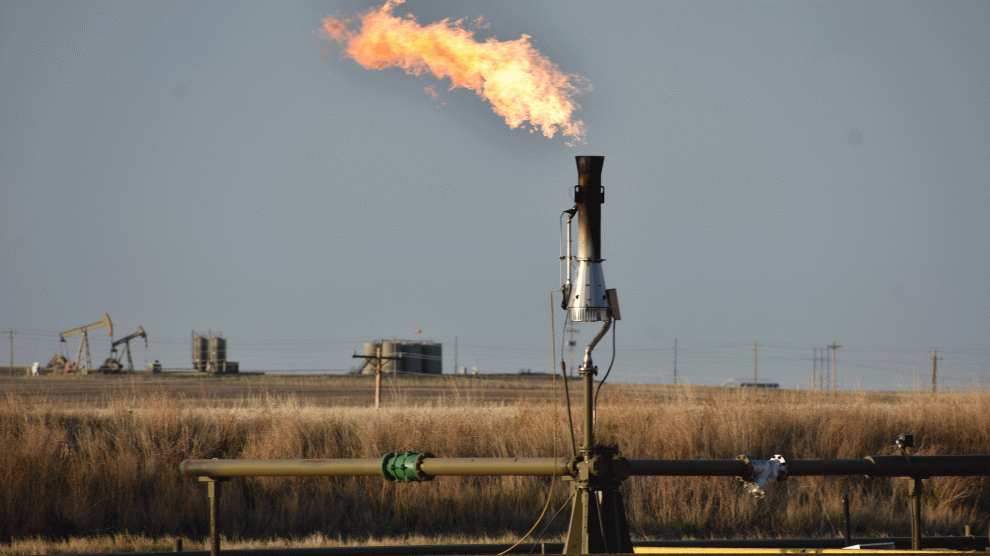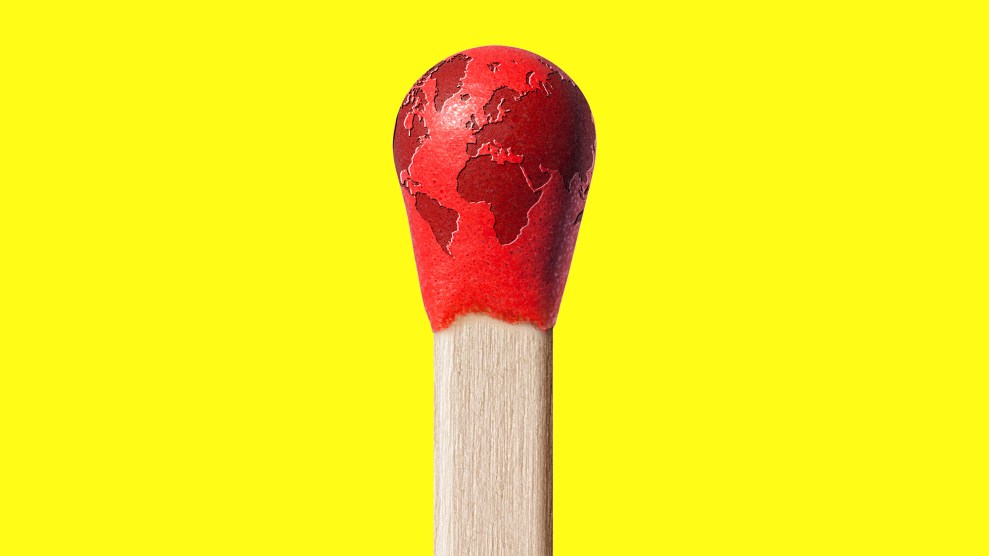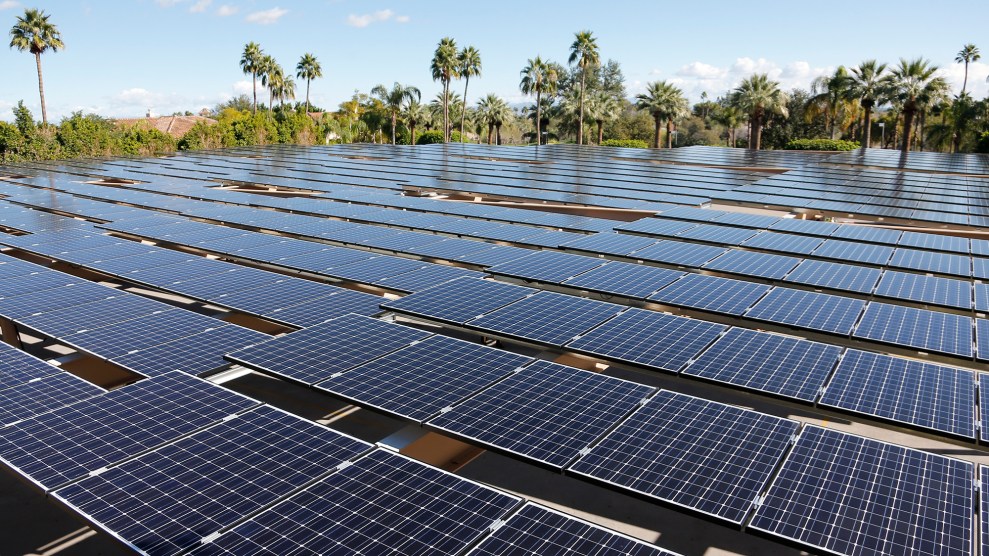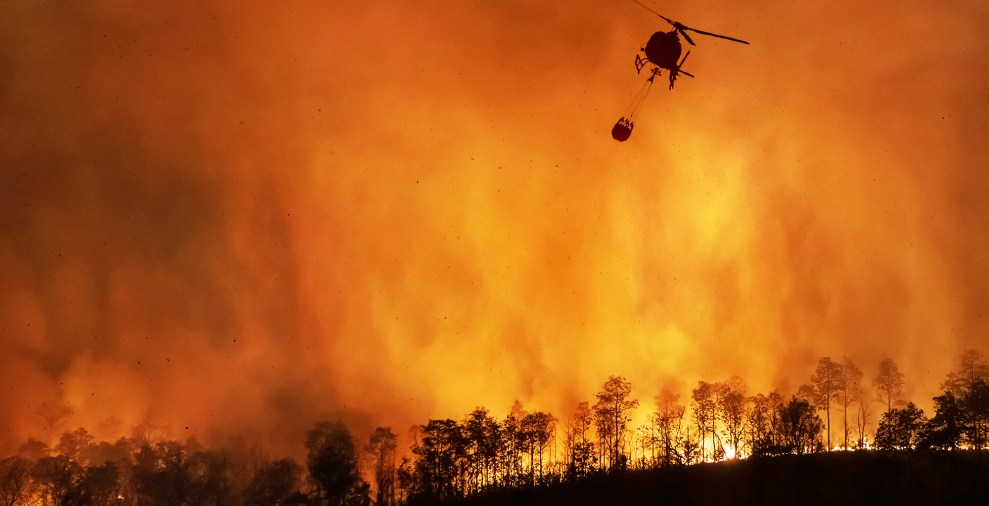
Getty
This story was originally published by the Guardian and is reproduced here as part of the Climate Desk collaboration.
Scientists have delivered a “final warning” on the climate crisis, as rising greenhouse gas emissions push the world to the brink of irrevocable damage that only swift and drastic action can avert.
The Intergovernmental Panel on Climate Change (IPCC), made up of the world’s leading climate scientists, set out the final part of its mammoth sixth assessment report on Monday.
The comprehensive review of human knowledge of the climate crisis took hundreds of scientists eight years to compile and runs to thousands of pages, but boiled down to one message: act now, or it will be too late.
The UN secretary general, António Guterres, said: “This report is a clarion call to massively fast-track climate efforts by every country and every sector and on every timeframe. Our world needs climate action on all fronts: everything, everywhere, all at once.”
In sober language, the IPCC set out the devastation that has already been inflicted on swathes of the world. Extreme weather caused by climate breakdown has led to increased deaths from intensifying heatwaves in all regions, millions of lives and homes destroyed in droughts and floods, millions of people facing hunger, and “increasingly irreversible losses” in vital ecosystems.
Monday’s final installment, called the synthesis report, is almost certain to be the last such assessment while the world still has a chance of limiting global temperature rises to 1.5C above preindustrial levels, the threshold beyond which our damage to the climate will rapidly become irreversible.
Kaisa Kosonen, a climate expert at Greenpeace International, said: “This report is definitely a final warning on 1.5C. If governments just stay on their current policies, the remaining carbon budget will be used up before the next IPCC report [due in 2030].”
More than 3 billion people already live in areas that are “highly vulnerable” to climate breakdown, the IPCC found, and half of the global population now experiences severe water scarcity for at least part of the year. In many areas, the report warned, we are already reaching the limit to which we can adapt to such severe changes, and weather extremes are “increasingly driving displacement” of people in Africa, Asia, North, Central and South America, and the south Pacific.
All of those impacts are set to increase rapidly, as we have failed to reverse the 200-year trend of rising greenhouse gas emissions, despite more than 30 years of warnings from the IPCC, which published its first report in 1990.
The world heats up in response to the accumulation of carbon dioxide and other greenhouse gases in the atmosphere, so every year in which emissions continue to rise eats up the available “carbon budget” and means much more drastic cuts will be needed in future years.
Yet there is still hope of staying within 1.5C, according to the report. Hoesung Lee, the chair of the IPCC, said: “This synthesis report underscores the urgency of taking more ambitious action and shows that, if we act now, we can still secure a livable sustainable future for all.”
Temperatures are now about 1.1C above pre-industrial levels, the IPCC found. If greenhouse gas emissions can be made to peak as soon as possible, and are reduced rapidly in the following years, it may still be possible to avoid the worst ravages that would follow a 1.5C rise.
Richard Allan, a professor of climate science at the University of Reading, said: “Every bit of warming avoided due to the collective actions pulled from our growing, increasingly effective toolkit of options is less worse news for societies and the ecosystems on which we all depend.”
Guterres called on governments to take drastic action to reduce emissions by investing in renewable energy and low-carbon technology. He said rich countries must try to reach net zero greenhouse gas emissions “as close as possible to 2040”, rather than waiting for the 2050 deadline most have signed up to.
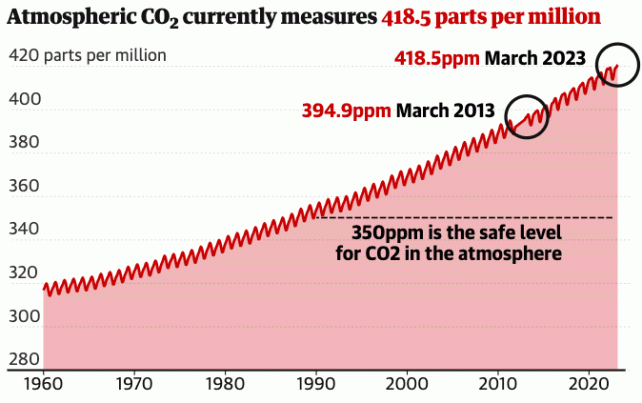
Source: NOAA. (Note: 280ppm is preindustrial baseline.)
Guardian
John Kerry, the US special presidential envoy for climate, said: “Today’s message from the IPCC is abundantly clear: we are making progress, but not enough. We have the tools to stave off and reduce the risks of the worst impacts of the climate crisis, but we must take advantage of this moment to act now.”
Monday’s “synthesis report” is the final part of the sixth assessment report (AR6) by the IPCC, which was set up in 1988 to investigate the climate and provide scientific underpinning to international policy on the crisis. The first three sections of AR6, published between August 2021 and April 2022, covered the physical science behind the climate crisis, and warned irreversible changes were now almost inevitable; section two covered the impacts, such as the loss of agriculture, rising sea levels, and the devastation of the natural world; and the third covered the means by which we can cut greenhouse gases, including renewable energy, restoring nature and technologies that capture and store carbon dioxide.
The “synthesis report” contains no new science, but draws together key messages from all of the preceding work to form a guide for governments. The next IPCC report is not due to be published before 2030, making this report effectively the scientific gold standard for advice to governments in this crucial decade.
